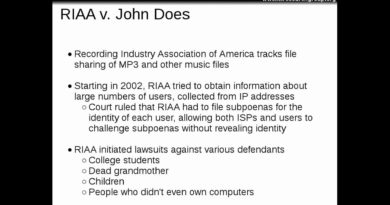Judges Share Their Courtroom Pet Peeves
“Lawyers don’t appreciate that the resources I have to deal with your case and with your motion are merely me and one law clerk. And I have around 400 civil and 75 criminal cases. Please don’t bring me silly squabbles.” – Judge John Holcomb
This year’s IPWatchdog LIVE meeting featured more than 30 panels and keynote or featured luncheon speakers, several of which we reported on here. But as the name implies, much of the action at IPWatchdog LIVE is meant only for the eyes and ears of those who attend in person, and that was the case with the judges’ panel, which included several high-profile retired and sitting judges responsible for hearing intellectual property cases across a range of venues. While their substantive discussion was off the record, some of the judges agreed to share their thoughts on the most irritating behaviors that parties have displayed in their courtrooms—along with their advice on how to avoid grinding their gears. Here is what they had to say.
Hon. Theodore Essex , Senior Counsel, Hogan Lovells, former U.S. International Trade Commission (ITC) judge
, Senior Counsel, Hogan Lovells, former U.S. International Trade Commission (ITC) judge
“One of my very first cases involved parties where the attorneys were picking on each other terribly the whole time. Finally, I just said to them, “Please, be gentlemen!” When parties handle things in a professional manner you tend to pay more attention to them. Have integrity and act professionally instead of just trying to make your point and be snippy.”
 Hon. John W. Holcomb, United States District Judge, United States District Court for the Central District of California
Hon. John W. Holcomb, United States District Judge, United States District Court for the Central District of California
“Petty squabbles annoy me. Lawyers don’t appreciate that the resources I have to deal with your case and with your motion are merely me and one law clerk. And I have around 400 civil and 75 criminal cases. Please don’t bring me silly squabbles—like scheduling issues or page limit extensions—that you can solve on your own. Also, please organize the papers in a way that is logical and sequential and that allows me to analyze them easily. We have very limited bandwidth in chambers—help us to help you.”
Hon. Randall R. Rader
“In the past I was most annoyed when parties did not properly appreciate the purpose of an appellate court. An appellate court is a court of error correction. In other words, the court is seeking a SINGLE REVERSIBLE issue. A brief or argument that contains dozens of alleged errors or mistakes almost admits that it does not have a single REVERSIBLE issue. The talent of an attorney is recognizing the important facts and issues and usually that recognizes that a brief should emphasize just the mistakes that warrant reversal.”
Hon. Gerald E. Rosen
“In one case I had, the parties had been fighting with each other the whole time, and finally I told them, ‘you have to agree on a verdict form.’ When they came back to me with it, it was 21 pages single-spaced with flow charts. I told them, ‘this isn’t an agreement, it’s a conspiracy!’ I said, ‘go back and get it down to three pages, no more.’ They came back to me with eight pages. I finally got it down to four, and even that was too much. Guess what the first question was from the jury after getting that form? It was, ‘What would you do if we refused to fill out the verdict form because it’s so complicated?’ Patent cases are just like any other case–have a narrative, have a theme, and keep it simple.”
Image Source: Deposit Photos
Author: Sergii19.i.ua
Image ID: 262689088
Eileen McDermott
Eileen McDermott is the Editor-in-Chief of IPWatchdog.com. Eileen is a veteran IP and legal journalist, and no stranger to the intellectual property world, having held editorial and managerial positions at […see more]







